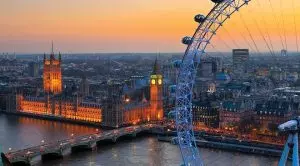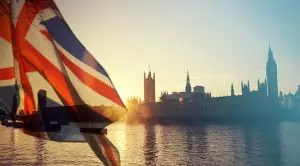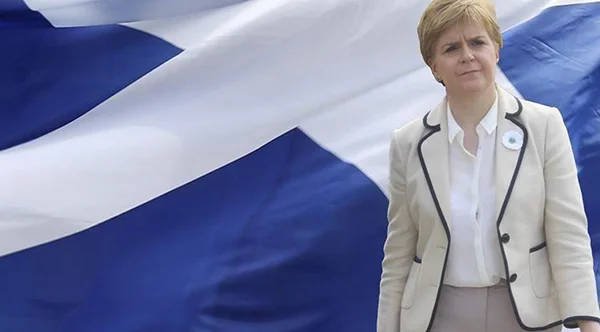 England, Scotland, Wales, and Northern Ireland are the four constituent nations that make up the UK and are often called the Home Nations. Although each of them can be described as a nation or country since Scotland, Wales, and Northern Ireland have gained a degree of autonomy through the process of devolution, they are not fully independent states. Because of this, the politics of Scotland and the other countries operate within the UK constitution.
England, Scotland, Wales, and Northern Ireland are the four constituent nations that make up the UK and are often called the Home Nations. Although each of them can be described as a nation or country since Scotland, Wales, and Northern Ireland have gained a degree of autonomy through the process of devolution, they are not fully independent states. Because of this, the politics of Scotland and the other countries operate within the UK constitution.
The most executive power is in the hands of the first minister, a position which is currently taken by the incumbent leader of the Scottish National Party, Nicola Sturgeon. She has been an integral part of the political scene for years, and her departure as the first minister, whenever it happens, will beyond doubt be a major change of guard.
The choice of her successor has already started to turn heads, and bookmakers now offer odds for the runners and riders to become the next Scottish first minister.
Key Challenges Scotland Faces
Today, several important matters determine the political course of the country, and, above all, the incumbent first minister focuses on the Coronavirus pandemic and the restrictive measures in place, as well as the conduction of a second Scottish independence referendum.
The Unresolved Question about the Referendum for Independence
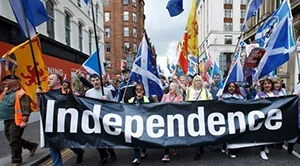 The Coronavirus outbreak and the way of handling the pandemic is one of the major factors that determine the approval and disapproval rates of politicians these days. In contrast to Mr. Johnson, whose popularity was shrinking during the pandemic, according to polls, Sturgeon did much better. That being said, her approval rating is undoubtedly a wake-up call when it comes to matters other than the pandemic.
The Coronavirus outbreak and the way of handling the pandemic is one of the major factors that determine the approval and disapproval rates of politicians these days. In contrast to Mr. Johnson, whose popularity was shrinking during the pandemic, according to polls, Sturgeon did much better. That being said, her approval rating is undoubtedly a wake-up call when it comes to matters other than the pandemic.
The pressure is expected to continue mounting until the referendum ultimately takes place, while the support for the union is expected to continue waning. What should also be considered is that Boris Johnson already declared that he will not agree to a referendum, but the SNP voiced their determination to go to court if required.
Good article from an expert who knows the EU inside & out.
Independent Scotland 'would take three to four years' to fully rejoin EU https://t.co/34OHaTZxt2
— Mhairi Hunter (@MhairiHunter) February 11, 2022
Yet, the UK government is indeed the biggest stumbling block to Scotland’s independence since Sturgeon’s calls for cooperation between the two governments on the matter were repudiated. The inactivity of the British ministers has brought the debate for the country’s independence to a standstill. Now, the SNP has the backing of the Scottish Greens, which is yet another pro-independence party in parliament.
It turns out that the public focus has shifted from the independence drive of the Scottish to the Coronavirus outbreak. The call for a second vote becomes less likely to be put on the agenda soon, and some even consider that the discussion might spin out until the end of 2022. In addition to this, Scottish Secretary Alister Jack declared recently that the referendum for independence will be held, provided that 60% of voters support this idea.
Scottish Secretary Alister Jack responds to the close defeat in Cardiff.🏉🏴🏴 #SixNationsRugby pic.twitter.com/pEMYf88SJm
— Office of the Secretary of State for Scotland (@ScotSecofState) February 12, 2022
When it comes to people’s stance on independence, it can safely be said that it is divided down the middle. The same also applies to the Scottish National Party’s attitude towards the referendum. Thus, Sturgeon is between a rock and a hard place as she needs to maintain the approval of the wider population and her colleagues in the next few years.
What is interesting to point out, however, is that although the support for independence has been consistently slightly over 50%, the results from polls that were carried out at the height of the pandemic show that the number of people who favor the idea of separation has started to dwindle.
Sturgeon’s Stance on Independence
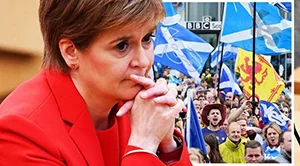 Although some might say that Sturgeon does not look determined to prioritize the independence vote, during a conference of the Scottish National Party Conference, she reassured that a second referendum will be held by the end of 2023. Sturgeon’s promise stirred up discontent among some of her colleagues because the conference was expected to focus heavily on the implications of the pandemic instead of bringing up the referendum.
Although some might say that Sturgeon does not look determined to prioritize the independence vote, during a conference of the Scottish National Party Conference, she reassured that a second referendum will be held by the end of 2023. Sturgeon’s promise stirred up discontent among some of her colleagues because the conference was expected to focus heavily on the implications of the pandemic instead of bringing up the referendum.
Nicola Sturgeon says "the preparatory work… is underway" to hold an independence referendum before the end of 2023
The First Minister says she hopes Scotland is on the "downward slope" of Omicron, which "clears the way"
#SundayMorning https://t.co/Lj4JMkBAec pic.twitter.com/X3olNpfWUg— BBC Politics (@BBCPolitics) January 23, 2022
So far, her priorities were rebuilding the public and economic services, as well as ending lockdowns. Obviously, Sturgeon has adopted a new line of action, and now she will attempt to persuade those who are still unsure whether to vote with “Yes” on the referendum that this move will work well for the country. Yet, attempting to change the middle-ground opinion can be dangerous because thus, the scales might tip in favor of her political opponents.
The Growing Tension between the Conservatives in Scotland and England
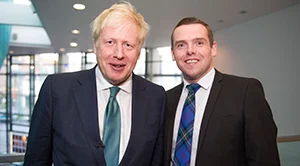 As things stand, the ideas of the Conservative Party are strongly approved by the Scottish, and in spite of their strong association with the London-based colleagues, shaking things up seems unavoidable. Douglas Ross, who is at the head of the Scottish Conservatives since 2020, stands his ground that it is time for Boris Johnson to resign, and his position was almost unanimously approved by the Tory MPs.
As things stand, the ideas of the Conservative Party are strongly approved by the Scottish, and in spite of their strong association with the London-based colleagues, shaking things up seems unavoidable. Douglas Ross, who is at the head of the Scottish Conservatives since 2020, stands his ground that it is time for Boris Johnson to resign, and his position was almost unanimously approved by the Tory MPs.
One minute Douglas Ross tells Boris Johnson he has to resign over his lying to the Commons and Covid rule breaching parties. Next minute he invites him to his own party (political party that is) conference. How can the @ScotTories be taken seriously on the doorsteps? pic.twitter.com/YYsT68fEWq
— JOHN NICOLSON M.P. (@MrJohnNicolson) February 12, 2022
The ongoing tension between the Conservatives in Scotland and Westminster was fired by Mr. Johnson’s confession that he has been present to social events after the introduction of the strict Covid measures. Yet, many consider that this move was simply jumping before the gun, especially while waiting for the inquiry led by Sue Gray to be made public.
Mr. Johnson’s future looks rather gloomy, all the more so after the information came out that he will not be admitted to the Tory Conference, which will be held in March, which is a precedent in history. Even though Scottish Tory leaders sometimes frown on the UK policies, all the more so after Brexit, the resentment against Mr. Johnson has never been so bitter.
The UK is becoming increasingly divided on the political front, and the victory the SNP got in Holyrood goes to prove this beyond doubt. The popularity of Mr. Johnson’s party north of the Border is not at the least impressive, but he still saw a victory in the by-election in Hartlepool last year.
Is The Scottish Political Landscape about to Change
There are several issues that will dominate politics in 2022, including Covid, elections for local governments, and most importantly, whether Boris Johnson will continue to serve as prime minister. The significance of the question of independence should not be underrated either, and as it seems, the rhetoric about it is expected to ramp up this year. The legislative changes lawmakers have in their in-trays, along with the pledges they have made, are sure to remain in the spotlight during 2022.
2021 Scottish Parliament Elections
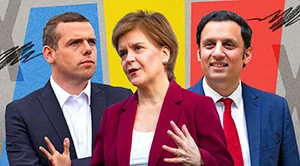 The 2021 Scottish Parliament Elections were held on the 6th of May 2021, while the campaign started on the 25th of March. After the reestablishment of the parliament, these were the sixth elections. The main parties that took part in the elections were the Scottish Conservatives led by Douglass Ross, the SNP led by Nicola Sturgeon, Scottish Labour led by Anas Sarwar, the Scottish Greens led by Patrick Harvie and Lorna Slater, and Scottish Liberal Democrats led by Willie Rennie. What is interesting to note is that from 2016 onwards, all these parties have had new chairmen.
The 2021 Scottish Parliament Elections were held on the 6th of May 2021, while the campaign started on the 25th of March. After the reestablishment of the parliament, these were the sixth elections. The main parties that took part in the elections were the Scottish Conservatives led by Douglass Ross, the SNP led by Nicola Sturgeon, Scottish Labour led by Anas Sarwar, the Scottish Greens led by Patrick Harvie and Lorna Slater, and Scottish Liberal Democrats led by Willie Rennie. What is interesting to note is that from 2016 onwards, all these parties have had new chairmen.
Scottish parliament election forecast (30 Apr 2021):
SNP: 62 MSPs (-1)
CON: 26 (-5)
LAB: 25 (+1)
GRN: 11 (+5)
LDEM: 5% (-)
ALBA: 0 (-)More on seat changes, polls and probabilities here:https://t.co/sEKbDLbuT5 pic.twitter.com/ucjaBSFcPj
— Britain Elects (@BritainElects) April 30, 2021
There were several new parties that ran for the elections, and these included the Alba Party, which was led by Alex Salmond, All for Unity, which was led by George Galloway, and Reform UK Scotland, led by Michelle Ballantyne. Yet, none of the newly-formed parties managed to win seats.
The Scottish National Party got 64 seats, thus, winning their fourth term in government. The Greens saw their biggest success up to this point as they got 8 seats. The Conservative Party was second with 31 seats, while Scottish Labor only got 22 seats, which is the poorest result they have seen. The Scottish Liberal Democrats got only 4 seats.
The SNP and the Greens got 72 seats out of all 129 seats to the Scottish Parliament. With its 31 seats, the largest oppositionist group is the one formed by the Scottish Conservative and Unionist parties.
The anti-Tory feelings in Scotland have been simmering for quite some time, and seeing them out of the parliament at the next elections is not excluded. In spite of calls that the party should become an independent force from London and even start working under a new name, no progress was achieved in this direction. In spite of the lack of consent in the past, but today, the party acted in a complete accord when asking Mr. Johnson to step down.
As for Scottish Labor, the most significant decisions that have to do with policies, appointments, and money seem not to be reached in Glasgow but in London instead.
When The Next Scottish Parliament Elections Will be Held
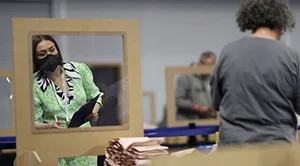 The next Scottish Parliament Elections will take place on the 7th of May 2026, and will be the seventh elections from 1999 onwards. The Scottish Elections (Reform) Act 2020 states that general elections to the Scottish Parliament should take place five years after the elections in 2021 and on the first Thursday of May. The Act replaced the 1998 Scotland Act, which stated that elections should be held every fourth year.
The next Scottish Parliament Elections will take place on the 7th of May 2026, and will be the seventh elections from 1999 onwards. The Scottish Elections (Reform) Act 2020 states that general elections to the Scottish Parliament should take place five years after the elections in 2021 and on the first Thursday of May. The Act replaced the 1998 Scotland Act, which stated that elections should be held every fourth year.
The speculations about whether Sturgeon will run for another term as a first minister were reignited after she turned down all questions about her future. Rumors had it for quite some time that the incumbent first minister even plans to resign. Although during interviews she reiterates that she needs to complete her full term, she also goes out of her way to focus the attention on her victory back in 2021 rather than explicitly saying whether she will be at the head of the party during the next elections. She even went on to describe the question of whether she will run for office again as “preposterous”, considering how far in the future this will be and how short her tenure is.
What The Referendum Outcome Might Be
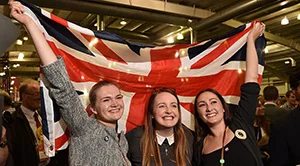 The opinion of the Scottish whether they should remain tethered to Westminster or they should push towards independence has almost always been evenly split up. Sturgeon goes out of her way to stand her ground that Brexit has inflicted serious harm and that issues like the cut of benefits and the spike of National Insurance tax are not less significant.
The opinion of the Scottish whether they should remain tethered to Westminster or they should push towards independence has almost always been evenly split up. Sturgeon goes out of her way to stand her ground that Brexit has inflicted serious harm and that issues like the cut of benefits and the spike of National Insurance tax are not less significant.
Polls show that prior to the General Election in 2015, there was a considerable difference between those who approved the idea of independence and those who did not. At the beginning of 2014, voters who said that they would vote in favor were slightly more than 30%, while those who said they would cast a negative vote exceeded 40%. Those who could not decide, however, exceeded 30%.
By the time of the elections in 2015, those who said they would vote in favor of independence were 44%, while those who were not were 48%. The share of voters who were unable to decide shrunk to 7%.
Between the 2017 General Elections and the 2019 General Elections, the share of no voters was consistently higher. On the election day, the share of no and yes voters again came exceptionally close and was 47% and 44%, respectively.
| 2014 | 2015 General Election | Brexit | 2017 General Election | 2019 General Election | January 2022 | |
|---|---|---|---|---|---|---|
| Yes voters | 31% | 44% | 45% | 40% | 44% | 46% |
| No voters | 45% | 48% | 44% | 52% | 48% | 46% |
| Cannot decide | 24% | 8% | 10% | 7% | 8% | 8% |
Contenders To Become The Next Scottish Prime Minister
Although there is plenty of time until the next voting in the Scottish Parliament Elections, bookmakers have already started to provide lines for the possible would-be first minister of the country. If make-up-your-mind time is yet to come, these are the top ten to take office.
Nicola Sturgeon
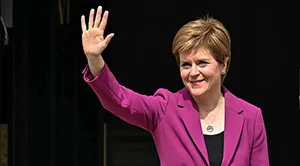 By far, the most admired political figure in the country is Nicala Sturgeon, who is the leader of the nationalist SNP and Scotland’s First Minister. The Scottish Nationalist Party has taken it upon itself to make the country part of the EU and most importantly, gain independence from the UK, and its views are endorsed by a considerable share of the Scottish. As a result, the party has been commanding the stage for 14 years, 7 from which Sturgeon has been serving as its leader. The incumbent leader of the party took the post back in 2014 when she was elected unopposed and succeeded Alex Salmond. Thus, she became the first woman to take up either of these posts.
By far, the most admired political figure in the country is Nicala Sturgeon, who is the leader of the nationalist SNP and Scotland’s First Minister. The Scottish Nationalist Party has taken it upon itself to make the country part of the EU and most importantly, gain independence from the UK, and its views are endorsed by a considerable share of the Scottish. As a result, the party has been commanding the stage for 14 years, 7 from which Sturgeon has been serving as its leader. The incumbent leader of the party took the post back in 2014 when she was elected unopposed and succeeded Alex Salmond. Thus, she became the first woman to take up either of these posts.
Although she came up with some new lines and decided to resort to some of her well-known arguments, many consider that Sturgeon brings up more division than union in the country and among her colleagues.
This is an incredibly impressive list of people, all making clear that a future independent Scotland should be warmly and quickly welcomed back into the EU. https://t.co/ue6OkjAQTD
— Nicola Sturgeon (@NicolaSturgeon) April 29, 2021
It is interesting to point out that Sturgeon’s political aspirations began when she was 16 years old, as this is when she became a member of the Scottish National Party. She has a law degree from the University of Glasgow and has worked as a solicitor for a while.
When the General Elections back in 1992 were held, Sturgeon was 21 years old, which made her the youngest candidate. After a few years, Sturgeon became a member of the Scottish Parliament and quickly became one of the most prominent figures of the SNP. The SNP emerged as the largest party in the elections for Scottish Parliament in 2007. As a result, Alex Salmond became first minister, while Sturgeon assumed the post of his deputy. In November 2014, Sturgeon became leader of the SNP and Scotland’s First Minister.
In the next few years, Sturgeon led the SNP to a straight victory in the 2016 General Elections, the first independence referendum, Brexit, Coronavirus pandemic, and the 2021 Scottish Parliament Elections.
Alex Salmond
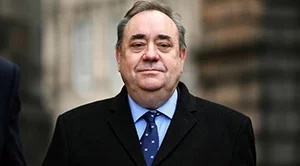 Alex Salmond is yet another prominent figure that is expected to contest in the elections for prime minister. As a student, he became a member of the Scottish National Party and member of the 79 Group. Although Salmond was expelled from the SNP after the 79 Group was banned because of its radical ideas, a couple of years after this, he became one of the key figures of the National Scottish Party. In 2012, Salmond was the one to sign an agreement with Prime Minister David Cameron for the conduction of the independence referendum.
Alex Salmond is yet another prominent figure that is expected to contest in the elections for prime minister. As a student, he became a member of the Scottish National Party and member of the 79 Group. Although Salmond was expelled from the SNP after the 79 Group was banned because of its radical ideas, a couple of years after this, he became one of the key figures of the National Scottish Party. In 2012, Salmond was the one to sign an agreement with Prime Minister David Cameron for the conduction of the independence referendum.
He led the breakaway of the Alba party, which the Scottish saw ahead of the elections that were held in May last year. The nationalist and pro-independence party is led by Alex Salmond, who served in the British House of Common and was Scotland’s first minister between 2007 and 2014. Yet, the newly-formed party did not see much of a success in the May elections as it only got 1.7 percent of the vote. As a result, none of the Alba candidates made it to the parliament.
Salmond is a strong proponent of the push for independence, and in his view, now is the best time to go for a referendum as Boris Johnson is mired in scandals, and being ousted by the end of the year looks more and more on the cards.
Douglas Ross
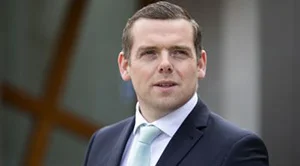 Douglas Ross is yet another name for which bookmakers provide betting odds. He has studied at the Scottish Agricultural College and was initially a member of the Scottish Liberal Democrats. Currently, he is at the head of the Scottish Tory Party and sits as an MP in the House of Commons. Under Prime Minister Boris Johnson, Ross has served as Parliamentary Under-Secretary of State for Scotland for half a year but resigned in May 2020. After Jackson Carlaw stepped down as leader of the Conservative Party, Ross announced his candidature and was elected leader unopposed.
Douglas Ross is yet another name for which bookmakers provide betting odds. He has studied at the Scottish Agricultural College and was initially a member of the Scottish Liberal Democrats. Currently, he is at the head of the Scottish Tory Party and sits as an MP in the House of Commons. Under Prime Minister Boris Johnson, Ross has served as Parliamentary Under-Secretary of State for Scotland for half a year but resigned in May 2020. After Jackson Carlaw stepped down as leader of the Conservative Party, Ross announced his candidature and was elected leader unopposed.
Prior to becoming a Tory leader, Ross was among the biggest supporters of Boris Johnson’s bid for the prime minister. Things took another turn after Mr. Johnson admitted that he attended a drinks bash after the instruction of stricter Covid measures. Ross is firm that the prime minister should resign over the scandal, and Mr. Johnson’s apology does not hold water.
In an attempt to become a hardliner, Ross declared that he will write the leader of the Conservative Party in the House of Commons of the United Kingdom to say it in an unambiguous way that he no longer supports the prime minister, thus clearly demonstrating that he wants to distance himself from Mr. Johnson.
Angus Robertson
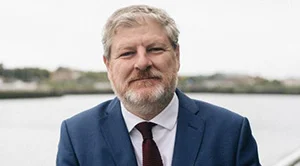 Born in Wimbledon, Angus Robertson is also among the would-be pretenders to become the next first minister of Scotland. Robertson has studied at the University of Aberdeen and worked as a journalist prior to starting his political career.
Born in Wimbledon, Angus Robertson is also among the would-be pretenders to become the next first minister of Scotland. Robertson has studied at the University of Aberdeen and worked as a journalist prior to starting his political career.
He has been an SNP’s depute leader between 2016 and 2018 and has previously served as Westminster MP for Moray and Member of the Scottish Parliament for Edinburgh Central. Robertson became SNP Leader in the House of Commons after Alex Salmond became First Minister of Scotland in May 2007. Back in 2016, Robertson replaced Stewart Hosie on the post of Depute Leader of the SNP. He was elected unopposed, but after two years, Robertson decided to step down. In 2019, Roberson, along with Mark Diffley, established a pro-independence think tank called Progress Scotland.
In the 2021 Scottish Parliament election, Roberson decided to contest the Edinburgh Central constituency, and ultimately won ahead of Marco Biagi. Since 2021, Angus Roberston has been serving as Cabinet Secretary for the Constitution, External Affairs and Culture after the SNP’s victory in the General Election.
John Swinney
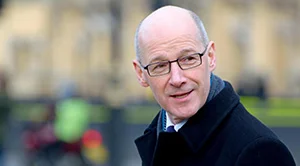 John Swinney is another Scottish politician who is expected to take part in the political campaign for the elections of the next first minister of Scotland. Much like Sturgeon, Swinney also had early political aspirations as he joined the SNP when he was 15 years old. Initially, he became an SNP assistant national secretary and, at the age of 22, Swinney became National Secretary.
John Swinney is another Scottish politician who is expected to take part in the political campaign for the elections of the next first minister of Scotland. Much like Sturgeon, Swinney also had early political aspirations as he joined the SNP when he was 15 years old. Initially, he became an SNP assistant national secretary and, at the age of 22, Swinney became National Secretary.
After the leadership contest in 2000, which was caused by Alex Salmond’s resignation, Swinney won against Alex Neil. In spite of this, the poor performance of the party in the elections for Scottish Parliament and the UK General Elections made many people doubt his capacity to lead the SNP.
Swinney won the leadership challenge from Bill Willson, but because of the growing pressure he was under, he decided to step down in June 2004. In 2007, Swinney became Cabinet Secretary for Finance and Sustainable Growth after his involvement in the coalition talks. After Sturgeon became First Minister of Scotland in 2014, Swinney remained a Finance Secretary in her cabinet but was also appointed to serve as the Deputy First Minister of Scotland. After the SNP’s victory in the elections for Scottish Parliament in 2016, Swinney became Cabinet Secretary for Education and Skills.
In 2021, Swiney was replaced as Cabinet Secretary for Education, and after this, Sturgeon announced that he will serve as Cabinet Secretary for Education and will continue to be Deputy First Minister of Scotland.
Kate Forbes
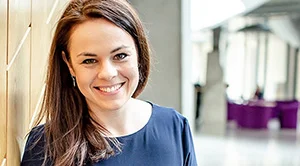 Kate Forbes was born in Northern Scotland and has attended the Selwyn College at the University of Cambridge and the University of Edinburgh. Today, she is Scotland’s Cabinet Secretary for Finance and the Economy and has been tipped as a would-be first minister.
Kate Forbes was born in Northern Scotland and has attended the Selwyn College at the University of Cambridge and the University of Edinburgh. Today, she is Scotland’s Cabinet Secretary for Finance and the Economy and has been tipped as a would-be first minister.
In 2015, Forbes was chosen as a candidate for the Skye, Lochaber and Badenoch constituency, and a couple of years after this, was appointed Minister for Public Finance and Digital Economy by Nicola Sturgeon. She has taken up the post of Cabinet Secretary for Finance for one year. She is a member of the Scottish National Party and has been an MSP since 2016.
After Derek Mackay stepped down as a Cabinet Secretary for Finance and the Economy, she became the first woman to deliver the Scottish Budget. She is also the first woman to hold the position of Finance Secretary. Now, she is also responsible for the economic recovery of the country from the Coronavirus pandemic.
Kate Forbes considers that a second independence referendum should be held once the Coronavirus pandemic is over.
Humza Yousaf
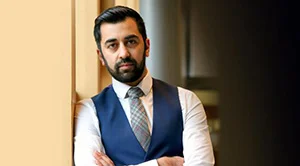 Humza Yousaf is also tipped as a possible future first minister. He was born and raised in Glasgow, and at the age of 26 became the youngest MSP. He has earned an MA at the University of Glasgow and has been a parliamentary assistant of several key political figures, including Alex Salmond. Between 2012 and 2018, Humza Yousaf has been given several junior ministerial positions.
Humza Yousaf is also tipped as a possible future first minister. He was born and raised in Glasgow, and at the age of 26 became the youngest MSP. He has earned an MA at the University of Glasgow and has been a parliamentary assistant of several key political figures, including Alex Salmond. Between 2012 and 2018, Humza Yousaf has been given several junior ministerial positions.
When Alex Salmond took up with the cabinet reshuffle, Yousaf was appointed Minister for External Affairs and International Development. It is interesting to point out that Humza Yousaf is the first Muslim and Scottish Asian to become a minister in the Scottish government. In 2018, Humza Yousaf was given the post of Justice Secretary in the Cabinet, but the Hate Crime Bill he introduced while being on the post was not well accepted and caused controversy.
Humza Yousaf has been leading the country’s Covid19 vaccination program, and subsequently was appointed Health Secretary.
Joanna Cherry
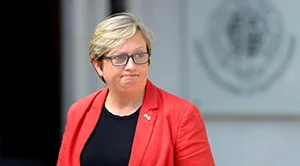 Joanna Cherry is a Scottish politician and lawyer who has been an MP for Edinburgh South West since 2015. Cherry is a member of the Scottish National Party and has served as Shadow Secretary of State for Justice and Shadow Home Secretary between 2015 and 2021.
Joanna Cherry is a Scottish politician and lawyer who has been an MP for Edinburgh South West since 2015. Cherry is a member of the Scottish National Party and has served as Shadow Secretary of State for Justice and Shadow Home Secretary between 2015 and 2021.
Cherry is a strong proponent of independence, and back in 2014, she set up a lawyer’s pro-independence movement. She won seats in the 2015 UK General Election and the 2017 General Election. In 2019 during the General Election, Cherry was re-elected as MP in Edinburgh South West. At the beginning of 2021, the SNP’s leadership decided to sack Cherry from the front bench.
Although she intended to step back from her public activities, after the 2021 Scottish Parliament election, Cherry started her work again. At the end of May 2021, Joanna Cherry decided to leave the national executive committee of the Scottish National Party.
Cherry is considered a hardliner when it comes to her ideas about the conduction of a second independence referendum. In her view, the Scottish government needs to conduct the referendum even without the approval of Westminster.
Anas Sarwar
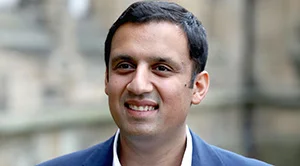 Anas Sarwar has been at the head of the Scottish Labor Party since 2021 and is also expected to be in the running to be the next first minister. From 2010 to 2015, Sawar was MP for Glasgow Central, and in 2016, he became an MSP for the Glasgow region. Prior to running in the 2010 General Election and succeeding his father Mohammad Sarwar, Anas Sarwar worked as a dentist. While being in the House of Commons from 2011 to 2014, Sarwar was Deputy Leader of the Scottish Labor Party.
Anas Sarwar has been at the head of the Scottish Labor Party since 2021 and is also expected to be in the running to be the next first minister. From 2010 to 2015, Sawar was MP for Glasgow Central, and in 2016, he became an MSP for the Glasgow region. Prior to running in the 2010 General Election and succeeding his father Mohammad Sarwar, Anas Sarwar worked as a dentist. While being in the House of Commons from 2011 to 2014, Sarwar was Deputy Leader of the Scottish Labor Party.
Yet, at the 2015 General Election, Anas Sarwar lost his seat to the SNP. Although Sarwar lost to Richard Leonard in the Scottish Labor leadership election that was held in 2017, in 2021, he ultimately became leader of the party after winning more than 57% of the vote.
Sarwar was ahead of the Labor Party in the 2021 Scottish Parliament Elections when the party didn’t see much of a success as it lost two of its seats when compared to the results from the previous elections. Back then, Sarwar lost to Nicola Surgeon in Glasgow Southside.
Keith Brown
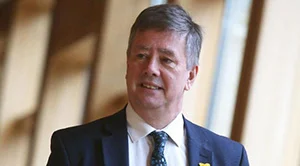 Keith Brown is a Royal Marines commando and incumbent Deputy Leader of the Scottish National Party. While studying Politics at the University of Dundee, Brown joined the SNP. In 1997, Brown became a group leader, and after a few years, Leader of the Council. At the 2007 Election, Brown was elected to the Scottish Parliament, while in 2010, he started serving as Minister for Schools and Skills. Just a year later, Brown became Minister for Transport and Infrastructure. In 2011 Keith Brown was re-elected to the Scottish Parliament, and in the next year, he started working as a Minister for Transport and Veterans.
Keith Brown is a Royal Marines commando and incumbent Deputy Leader of the Scottish National Party. While studying Politics at the University of Dundee, Brown joined the SNP. In 1997, Brown became a group leader, and after a few years, Leader of the Council. At the 2007 Election, Brown was elected to the Scottish Parliament, while in 2010, he started serving as Minister for Schools and Skills. Just a year later, Brown became Minister for Transport and Infrastructure. In 2011 Keith Brown was re-elected to the Scottish Parliament, and in the next year, he started working as a Minister for Transport and Veterans.
In 2016, Brown became Cabinet Secretary for the Economy, Jobs, and Fair Work. In June 2018, Keith Brown won the Scottish National Party deputy leadership election and became deputy leader of the SNP. When he assumed the responsibilities of a deputy leader, Brown made it clear that he would insist on the conduction of a second independence referendum. In 2018, Brown stood down as Economy Secretary and started working as a Campaign Manager of the SNP.
Who Would Be the Next Scottish Prime Minister Betting Odds
There are a number of bookmakers that have already started offering odds on who the next first minister of Scotland will be. The year of the independence referendum and whether Sturgeon will remain ahead of the government are also among the events bookies provide odds for.
Ladbrokes
| Will Nicola Sturgeon Still Be First Minister At The Next Holyrood Election? | |
|---|---|
| Yes | No |
| 1.62 | 2.2 |
| Year Of Next Official Referendum (Sanctioned by the UK and Scottish Governments) | |||
|---|---|---|---|
| 2022 | 2023 | 2024 | Not before 2025 |
| 26.00 | 6.00 | 2.5 | 1.44 |
| Scotland to Vote Yes to Independence before 2023 |
|---|
| Yes |
| 41.00 |
Coral
| Will Nicola Sturgeon still be first minister at the time of the next Holyrood election? | |
|---|---|
| Yes | No |
| 2.2 | 1.62 |
Paddy Power
| Next Scottish Independence Referendum Result | |
|---|---|
| For Independence (Pass) | Against Independence (Fail) |
| 1.83 | 1.83 |
Betfair
| Next Scottish Independence Referendum Result | |
|---|---|
| For Independence (Pass) | Against Independence (Fail) |
| 1.83 | 1.83 |
Betfred
| Year of the next Scottish Independence referendum | |||
|---|---|---|---|
| 2022 | 2023 | 2024 | Not before 2025 |
| 26 | 6.00 | 4.5 | 1.5 |
Betway
| Result of the next Scottish independence referendum | |||
|---|---|---|---|
| No to independence | 1.83 | ||
| Yes to independence | 1.83 | ||
| Year of the next independence referendum | |||
|---|---|---|---|
| 2022 | 2023 | 2024 | 2025 or later |
| 51.00 | 5.50 | 4.50 | 1.40 |
22bet
| Date of the next Scottish independence referendum | |||
|---|---|---|---|
| 2022 | 2023 | 2024 | 2025 or later |
| 17 | 4.32 | 4.5 | 1.62 |
| Next Independence Referendum Result | |
|---|---|
| For Independence (Pass) | Against Independence (Fail) |
| 1.83 | 1.83 |
Next Scottish First Minister Betting Odds
| Ladbrokes | William Hill | Sky Bet | Coral | Betway | 22bet | |
|---|---|---|---|---|---|---|
| Angus Robertson | 3.50 | 2.50 | 2.50 | 3.50 | 2.37 | 2.50 |
| John Swinney | 7.00 | 9.00 | 9.00 | 7.00 | 5.50 | 9.00 |
| Kate Forbes | 9.00 | 7.50 | 9.00 | 9.00 | 13.00 | 9.00 |
| Humza Yousaf | 11.00 | 10.00 | 11.00 | 11.00 | 13.00 | 11.00 |
| Anas Sarwar | 17.00 | 13.00 | 15.00 | 17.00 | 15.00 | 15.00 |
| Douglass Ross | 17.00 | 17.00 | 19.00 | 17.00 | 17.00 | 19.00 |
| Joanna Cherry | 17.00 | 15.00 | 15.00 | 17.00 | 17.00 | 15.00 |
| Keith Brown | 17.00 | 17.00 | 17.00 | 17.00 | 17.00 | 17.00 |
| Alex Salmond | 34.00 | 26.00 | 26.00 | 34.00 | N/A | 26.00 |
| Mhairi Black | 34.00 | 21.00 | 29.00 | 34.00 | 21.00 | 29.00 |
| Ruth Davidson | 34.00 | 34.00 | 34.00 | 34.00 | 21.00 | 34.00 |
| Derek Mackay | 51.00 | 51.00 | 41.00 | 51.00 | 26.00 | 41.00 |
| Michael Russell | 51.00 | 51.00 | 34.00 | 51.00 | N/A | 34.00 |
| Shirley-Anne Somerville | 51.00 | 51.00 | 34.00 | 51.00 | 26.00 | 34.00 |
| Shona Robison | 51.00 | 51.00 | 41.00 | 51.00 | N/A | 41.00 |
| Stewart Hosie | 51.00 | 51.00 | 51.00 | 51.00 | N/A | 51.00 |
| Andrew Wilson | 67.00 | 51.00 | 67.00 | 67.00 | N/A | 67.00 |
| Ash Denham | 67.00 | 67.00 | 51.00 | 67.00 | N/A | 51.00 |
| Jeane Freeman | 67.00 | 67.00 | 41.00 | 67.00 | N/A | 41.00 |
| Michael Matheson | 67.00 | 51.00 | 51.00 | 67.00 | N/A | 51.00 |
*Odds may vary from the date of writing
**This information is provided for informative purposes only and does not promote gambling activities
- Author
